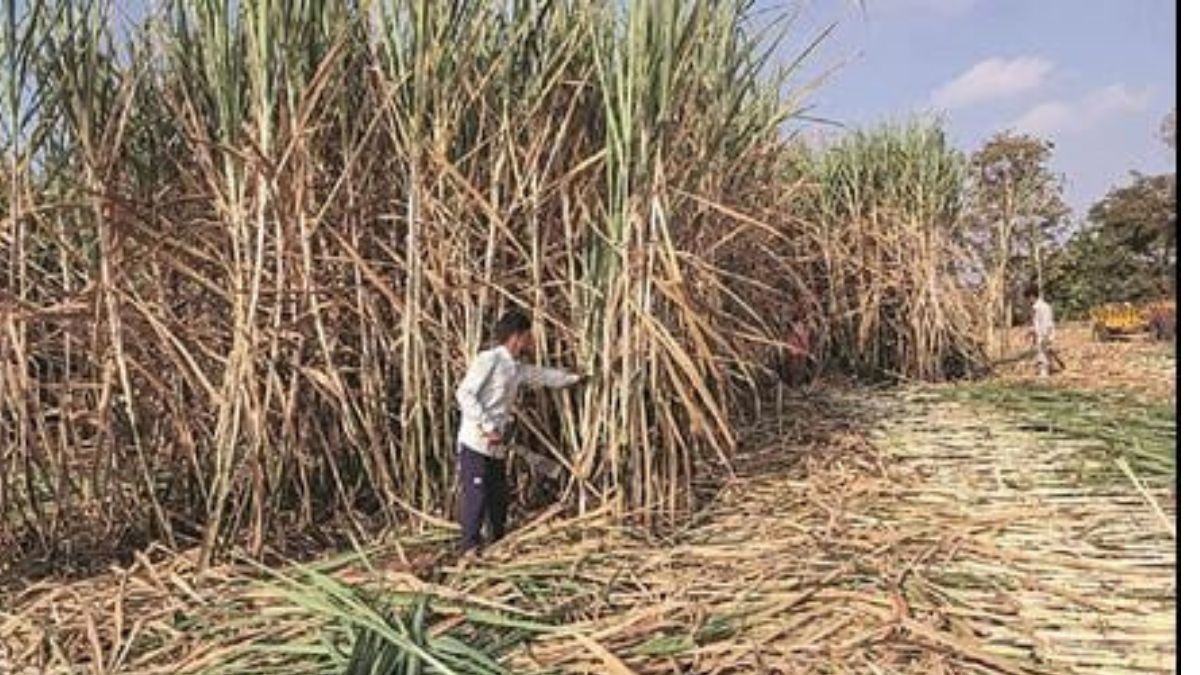
Due to long-standing problems with local manufacturers and increased procurement costs, sugarcane farmers along the Karnataka-Maharashtra border are increasingly sending their harvest to mills across state boundaries. According to official statistics from the Karnataka State Sugar Research Centre in Belagavi, around 25,000 farmers from the Kittur region of Karnataka already send their produce to mills in the Kolhapur district of Maharashtra each year, including mills in Hemaras, Harali, and Hamidwadi.
Each year, the combined crop of Shahu, Datt, Gurudatt, and Panchaganga exceeds 100,000 tonnes. The state government recently announced a revised rate of ₹3,300 per tonne sold amid protests by farmers in Belagavi and Bagalkot over a demand for an increase in the MSP of sugarcane.
However, many farmers in these districts expressed dissatisfaction with the revised rate, citing the current rate in Maharashtra, which is higher by about ₹300. Before announcing the updated purchase price of ₹3,300 per tonne on November 7, the government met separately with mill owners and growers due to pressure. Reactions to the judgment were not all the same.
Siddagouda Modagi, president of the Karnataka Sugarcane Growers Association, which spearheaded the recent protest, claims that farmers’ trust in local factories has been damaged by long-standing problems with alleged cane weight manipulation and delayed installment payments. According to him, “Maharashtra maintains fair business practices and ensures clear, timely payments within 15 days of sale.”
According to Modagi, Belagavi mills’ inability to match Maharashtra’s more aggressive pricing has made the issue worse. According to him, local mills have been hesitant to pay even ₹3,500 per tonne, while manufacturers across the border are giving much larger amounts.
Belagavi, which was once thought of as Karnataka’s “sugar bowl” because to its extensive production and crushing, is currently seeing growing discontent among farmers. Many farmers claim that although the district’s mills offer help, including free cane cutting and transportation, they don’t guarantee prompt payment. The district has about thirty mills, many of which are associated with political figures. Last week, protests grew more intense, resulting in roadblocks and demonstrations in Bagalkot and Belagavi.
Tensions in Bagalkot increased after unidentified individuals set fire to over fifty tractor loads of cane that were waiting within the Godavari Sugar Factory grounds. As Maharashtra mills announce increased prices, farmers’ worries have grown. The highest price to date is ₹3,653 per tonne from Bhogavati Sugar Factory, ₹3,614 from Bidri Sugar Factory, and ₹3,525 from Dalmia Bharat Sugars.
According to Modagi, recovery rates, which dictate how much sugar can be produced from cane, account for a large portion of the price difference. The average recovery rate in Maharashtra is approximately 13%, which allows mills to raise procurement costs. Additionally, Maharashtra supplies mills with cane for almost 14 months, while Belagavi supplies it for about 8 months.
The average recovery in Belagavi, on the other hand, is only 11%, which limits mill owners’ ability to raise prices, he said. Muragesh Nirani, a former lawmaker and the leader of the Nirani Group, which runs four mills, including Nirani Sugars Limited, stated that prices in Bagalkot and Belagavi are still lower since cane recovery is continuously lower than in Maharashtra.
The state president of the Karnataka Rajya Raitha Sangha and Hasiru Sene, Choonappa Poojari, stated that farmers are reevaluating where they sell their cane due to the economic disparity. “Maharashtra mills are a sensible option for farmers who want just compensation,” he stated.
